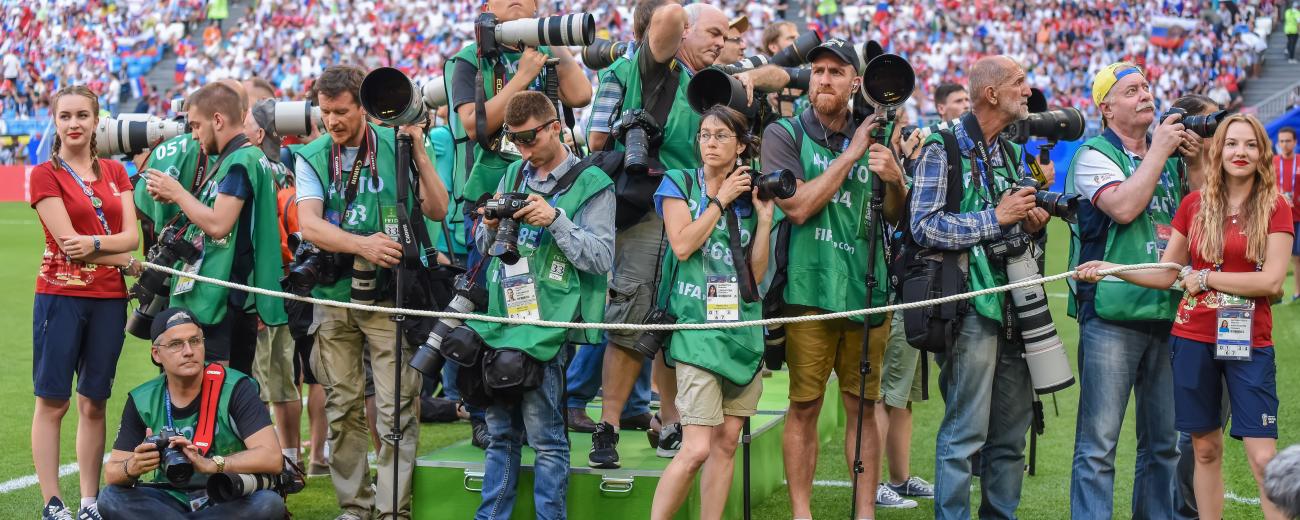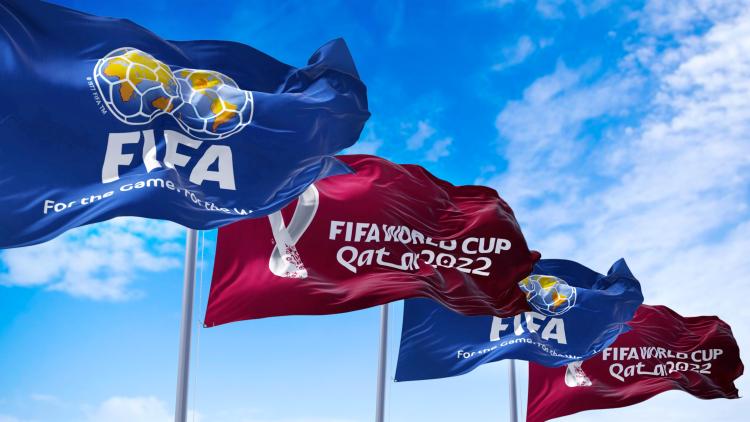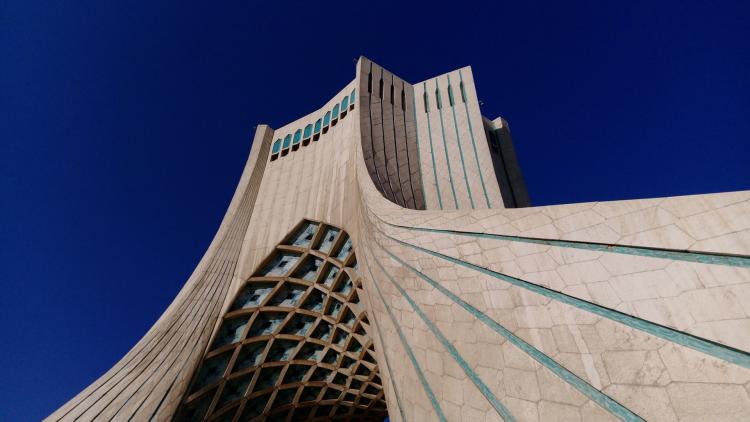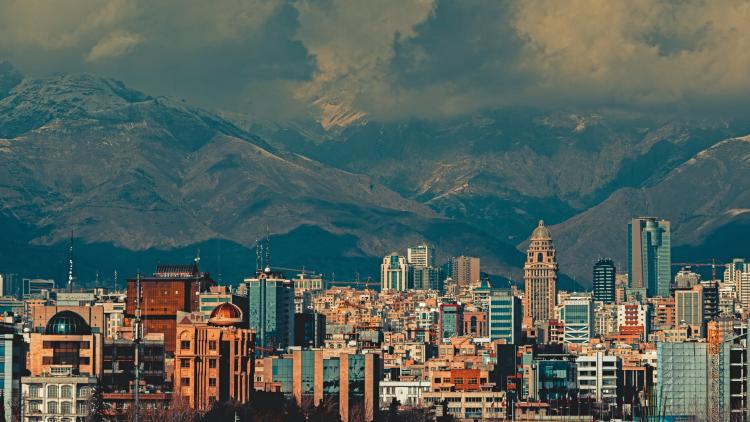Missing coverage from the Western media during the Qatar World Cup


As a sociolegal researcher focused on Qatar, I received several interview requests by different Western media outlets to comment on some legal issues in the country in the weeks leading up to the FIFA World Cup. While I believe many issues are worthy of being highlighted and discussed, I have been reluctant to engage with most of the requests I received, primarily because they came with an orientalist undertone. The centrism of the Western perspective in these narratives is reflected in how pointing out double-standards and pushing against an orientalist discourse is translated as a failure to acknowledge valid criticism, as if the two are antithetical. This kind of discourse pressures people who are intimately connected to many of these causes on the ground to ‘hedge’ their opinion in order not to be accused of whataboutism or of being apologetic for the Qatari government. In order not to be restricted by any of these narratives, I have instead decided to use this space to offer my perspective on what has been missing from this coverage and clarify the laws around some of the issues which have been selected by Western standards as the most significant.
Lack of non-official Qatari voices
Noticeably absent from the Western media coverage of the World Cup is non-official Qatari voices. Although some Qatari voices made it to this coverage, they have largely been overshadowed by Western voices. The stories covering Qatar, especially in relation to issues concerning the local population, particularly women and queer people, have tended to speak over them – rather than to them – about their own experiences. Responses to this coverage from Western audiences came in the form of calls to boycott the tournament, as well as supposed acts of solidarity. The most noticeable was the retracted plan by 7 European teams to wear the ‘OneLove’ armband, and the wearing of it by BBC pundit and ex-footballer Alex Scott and other European officials – something which came across as performative activism by the West to the West, whilst Qatari voices, including queer ones, are kept outside of this discourse, and a Western discourse projected on them instead. Those who were genuine in their activism were blinded by their white-saviour complex and assumed that queer Qataris would benefit from such a stance or feel supported by it. In fact, queer Qataris who shared their perspective have opposed this kind of performative activism, while other commentators pointed that these performative acts may lead to further antagonising society against queer people. These performative acts and calls of boycott reveal a very euro-centric way of viewing and understanding the world, which has assumed that people with a non-heteronormative sexual orientation globally are interested in expressing and emphasising their sexuality publicly. This euro-centric gaze has also assumed that Qatari homosexuals are not also part of and shaped by their own cultural context. While most media stories focused on reporting the ‘illegality of homosexuality’, they have overlooked to mention that people in Qatar generally express their sexuality privately because doing otherwise is not socially acceptable, even for heterosexuals. This should not be read to equate the experiences of heterosexuals with those of homosexuals, especially since heterosexuals have the option to legalise their relations through marriage; but is rather to stress that in the context of the conservative and family-oriented Qatari society, people feel more comfortable expressing their sexuality privately. The fact that the government school system is segregated, and that Qataris are more likely to belong to friend groups of the same-sex, makes it easier for same-sex relations to go around unnoticed, and escape social stigma. However, as is the case elsewhere, this does not mean that all queer people have the same experience, given that gender expression is generally more visible and public than sexual orientation.
Media coverage of homosexuality laws
The lack of context in the media coverage also stretched to how the law around homosexuality was reported. For example, many news reports have said that homosexuality is punishable in Qatar by imprisonment or death, without providing any context of how and when that is, or by providing inaccurate information. Qatar’s criminal law no. 11/2004 in articles 281 and 285 punishes those who engage in sexual intercourse, specifically extra-marital sex between a man and a woman, and sex between two men, with up to seven-years imprisonment if it is consensual, and more otherwise. Contrary to what some media outlets have reported (likely based on the Human Rights Watch misreporting of the law), the only situations where homosexuality could warrant the death penalty is when sex between two men is non-consensual or is consensual but the other party is someone who lacks capacity, and the defendant is his father, grandfather, caretaker, or a person who is in a position of power over the victim (arts 283-284). This is also the situation where a man could be punished by death for sex with a woman (arts 279-280).
Article 1 of the criminal law mentions sex between people of the opposite sex as one of the situations where Islamic rules could apply if one of the parties is a Muslim, but not sex between people of the same-sex. However, even if this stipulation was meant to include male same-sex relations, the punishment in Islamic law depends on whether the act is adultery or fornication. Only in the former case would the punishment be death, and it applies to sex between a man and a woman, and sex between two men equally. Most importantly, this punishment is not carried out unless there are four people who can attest to witnessing penetration. Given the many conditions surrounding this, positive law is mostly applied in this situation (i.e. imprisonment for up to seven years). Furthermore, since this act is private, it is rarely punished. On the other hand, accusing someone of having had illegal sex without proof is a serious offence and is punishable with up to three years imprisonment (326-327). A recent report by HRW found that some queer people were subjected to preventive detention based on law no. 17/2002 on the Protection of Society, which allows the arbitrary detention of ‘suspects’ for two weeks with possible extensions of up to six months on the grounds of, inter alia, preserving public morals. However, this law, whose constitutionality is questioned by Qatari lawyers, does not specifically apply to homosexuals, but also applies to heterosexuals found in ‘immoral’ situations. That people in Qatar express their sexuality privately also explains why most of the people interviewed for the HRW report were interrogated by the authorities for their gender expression. Nevertheless, this law is problematic because it goes against the principle of legality; it does not specify what acts compromise public morals and gives authorities space to abuse their power and detain people without trial. Qatar also does not have a specific law for domestic and gendered violence, which could further protect people in the private sphere.
Reporting on the number of migrant workers' deaths
The lack of context and nuance was also apparent in the reporting on the number of migrant workers’ deaths connected to the World Cup. The most viral piece reporting on this issue from the Guardian relied on data collected from several South Asian embassies of migrant deaths over a period of years regardless of their occupation, and linked them to the World Cup. This was based on the racialisation of every South Asian migrant in Qatar as a blue-collar construction worker, whereas many are domestic workers, service workers and white-collar workers including engineers and doctors. It also reflected a lack of understanding of the population composition of Qatar, where approximately 15% are nationals and the majority are migrant workers. The Washington Post also produced a viral infographic relying on data collected in a similar manner and compared it to project-specific deaths in other countries. This graph was later corrected to specify that it showed ‘all migrant deaths in Qatar since Dec 2012’, and the last version read ‘migrant deaths in Qatar from all causes in 2012 and 2013’ without comparing them to corresponding countries. Migrant rights groups which have been actively advocating for migrant rights in Qatar for years have condemned misleading reports on the number of deaths as harmful to the cause. Such false claims create space for the government to push back against criticism about the migrant situation and undermines other problems relevant to the migrant situation which are worthy of being highlighted.
Nevertheless, these numbers have gone viral with the misinformation that there was a relationship of causation between them and the awarding of the World Cup, despite corrections of the earlier pieces, and the publication of other fact-checking news reports. At the same time, fact-checking reports also pointed out that death figure announced by the Qatari government – three work-related accidents and 34 non-work related deaths among construction workers of World Cup projects – is inaccurate, because autopsies are not carried out to ascertain the cause of death of those who are recorded as deaths by ‘natural causes’. Migrant activists are of the view that autopsies may reveal that some of these deaths are caused by heat stress, and thus linked to the job, because migrants go through various health-checks before arriving to the Gulf. Furthermore, the government numbers do not include those working on other infrastructure projects with accelerated timelines due to the World Cup.
Labour laws and practice
At the same time, the scrutiny by the international community and by the media of the migrant situation in Qatar has yielded some positive legal reforms over the past decade, such as the expansion of a ban on outdoor work during the hottest hours of the day, the introduction of a wage protection system and a non-discriminatory minimum wage, the establishment of labour dispute resolution bodies, and a de jure dismantling of the Kafala system. This latter reform – in theory – enabled employees to change employers (and vice versa) at any time after the probation period, subject to notifying the other party of their intent to terminate the contract a month in advance during the first two years of work, and two months in advance after the second year of work (art 49). Furthermore, this amendment removed the previous requirement of providing a ‘no objection’ letter from the previous employer to change jobs, and enabled employees to change to a similar job without being bound by the no-competition clause in the previous contract for longer than one year following the end or termination of the contract (art 43).
Although these textual legal changes have been met with optimism by the International Labour Organisation (ILO) and the International Trade Union Confederation (ITUC), they are yet to fully materialise in practice. For example, work conducted on the ground by the NGO Migrant Rights has shown that employees still faced hurdles to change jobs, and that recently employers terminated contracts without proper notice to workers. Human Rights Watch also found that the wage protection system served as a notification system rather than an enforcement system. In other words, these legal reforms have not been enough to deter companies from violating the law. In many cases, the non-adherence of employers meant that workers still had to resort to court and submit a complaint to regain their entitlements. Because this nonadherence on the part of companies was rampant and violations were too many to count, Qatar implemented the Workers’ Support and Insurance Fund (WSIF) in 2020 to compensate workers in cases of wage theft, and has spent hundreds of millions in reimbursements. Although tens of thousands of workers were reimbursed, some were only partially reimbursed. This is because decision no. 2/2022 by the chairman of the WSIF Board of Directors limited the reimbursement claims to three months’ salaries for existing companies and domestic work, and two months’ salaries for dissolved companies. This decision may lead to further slowing reform on the ground, because it means that workers who do not come forward with their complaints quickly, due to fear of retaliation by the employer, lose their financial entitlements. Instead of limiting the period that reimbursements cover, Qatar’s focus should be shifted towards limiting the violations behind these reimbursement claims, which are enabled by a weak enforcement of the law.
Legacy of the FIFA World Cup Qatar 2022
For the past few weeks, Western media has chosen to focus on the treatment of migrant workers, homosexuals, and to a lesser extent, women, to challenge Qatar’s hosting of the World Cup. While there are issues in the law and in practice in relation to each of these files, the media reports have either misreported them and presented them in a reductionist manner or have obscured the voices of the groups concerned and spoke over them about their experiences and the action that should be taken ‘to support them’. At the core of this is a lack of ethical standards that allows journalists to get away with so much ignorance about the Arab world, and to report on people and issues without reflecting on their positionality. When European teams decided to show solidarity to local LGBTQ+ people by attempting to wear the ‘OneLove’ armband, and when the German Federal Minister of Interior wore the armband and met up with a Qatari official to discuss women’s rights, they have not consulted any local person from these groups about these decisions. In fact, the German Minister tweeted about this latter meeting in German, which shows that this is a performative act at the expense of Qatari women for German consumption. This German stance on human rights in Qatar, which was also reflected in the German team’s protest by covering their mouths in their first match, did not stop Germany from signing a liquified-gas deal with Qatar just a few days later. What the Western media reports have missed is that many Qataris, including women and queer people, have been excited about hosting and attending matches in the World Cup. This World Cup has also brought many Arab fans together, both physically and emotionally, and has been one of the most accessible for South Asian and African fans.
Disclaimer: All views and opinions expressed on the SOAS Blog are those of the authors and do not necessarily reflect the official policy or position of SOAS University of London.
About the author
Noora Al-Saai is a Lecturer of Law at Qatar University and is currently completing her PhD at SOAS. Her PhD project takes a sociolegal outlook on nationality and marriage laws in Qatar and looks at how they interrelate with questions of conflict of laws, legal pluralism and human rights. Before commencing her PhD project at SOAS, she read an MSc in Law, Anthropology and Society at the London School of Economics and Political Science and an LLB at Qatar University.


